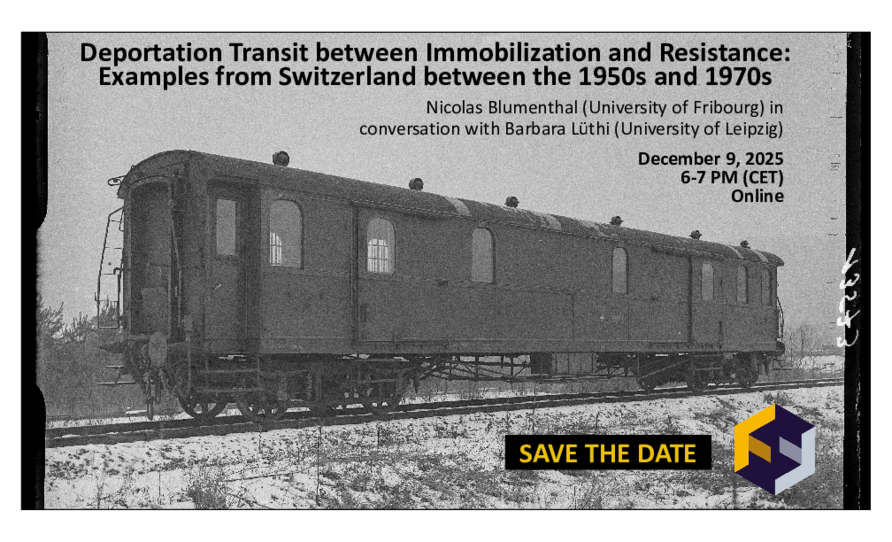Contrary to the commonly invoked image of a “well-oiled” deportation machine, deportation is often a
fragmented and disruptive process involving various actors and numerous transitional and transnational
spaces that affected non-citizens must navigate. Using examples from Switzerland during the 1950s to
1970s, Nicolas Blumenthal (University of Fribourg) and Barbara Lüthi (University of Leipzig) illustrate the
complex dimensions of transit during deportations. While transit is characterized by forced
immobilization, uncertainty, and extended waiting, it also represents a dynamic moment that can create
limited opportunities for action for the deported individuals. For illegalized migrants, even their
residence in Switzerland could constitute a moment of transit in the sense of a temporary and insecure
status, carrying the constant threat of deportation. The example of the “closet children” (Schrankkinder;
enfants du placard), who were forced to hide in apartments during the postwar decades due to
Switzerland’s ban on family reunification, vividly illustrates this. Their deportations repeatedly attracted
media attention and criticism.
December 9, 2025, 6-7 PM (Central European Time)
Introduction: Simone Lässig (Technische Universität Braunschweig) / Moderation: Swen Steinberg (Queen’s University, Kingston)
Online, please register here.
Organized by “In Global Transit: International Standing Working Group to Explore Spatial and Temporal Dimensions in Global Migration”
Website: transit.hypotheses.org
Contact: Swen Steinberg (Swen.Steinberg@queensu.ca)
Picture: F 104 13573 Gepäckwagen F4ü 18806 Aussenansicht, 1935.07.17, Wikimedia Commons, www.sbbarchiv.ch/detail.aspx

